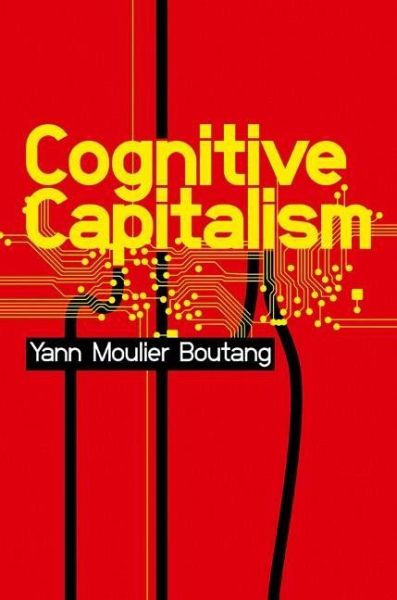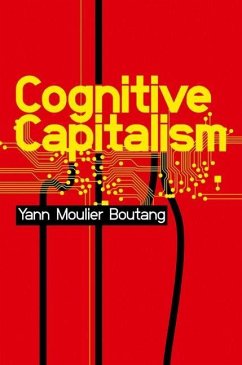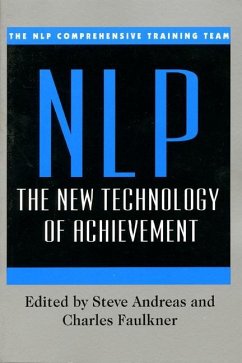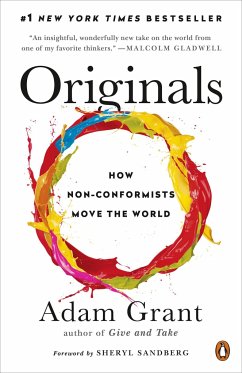
Cognitive Capitalism
Versandkostenfrei!
Versandfertig in über 4 Wochen
69,99 €
inkl. MwSt.
Weitere Ausgaben:

PAYBACK Punkte
35 °P sammeln!
We live in a time of transition, argues Yann Moulier Boutang. But the irony is that this is not a transition to a new type of society called 'socialism', as many on the Left had assumed; rather, it is a transition to a new type of capitalism. Socialism has been left behind by a new revolution in our midst. 'Globalization' effectively corresponds to the emergence, since 1975, of a third kind of capitalism. It does not have much to do with the industrial capitalism which, at the point of its birth (1750-1820), broke with earlier forms of mercantile capitalism. The aim of this book is to describe...
We live in a time of transition, argues Yann Moulier Boutang. But the irony is that this is not a transition to a new type of society called 'socialism', as many on the Left had assumed; rather, it is a transition to a new type of capitalism. Socialism has been left behind by a new revolution in our midst. 'Globalization' effectively corresponds to the emergence, since 1975, of a third kind of capitalism. It does not have much to do with the industrial capitalism which, at the point of its birth (1750-1820), broke with earlier forms of mercantile capitalism. The aim of this book is to describe and explain the characteristics of this third age of capitalism.
Boutang coins the term 'cognitive capitalism' to describe this new form of capitalism. While this notion remains a working hypothesis, it already provides some basic orientations and anchor points which are indispensible for political action. The political economy which was born with Adam Smith no longer offers us the possibility of understanding the reality which is being constructed before our eyes - namely the value, wealth and complexity of the world economic system ? and it also does not enable us to deal with the challenges that await humanity, whether ecological or social. This book thus seeks to put us onto the path of a provisional politics and morality capable of dealing with this new Great Transformation.
Boutang coins the term 'cognitive capitalism' to describe this new form of capitalism. While this notion remains a working hypothesis, it already provides some basic orientations and anchor points which are indispensible for political action. The political economy which was born with Adam Smith no longer offers us the possibility of understanding the reality which is being constructed before our eyes - namely the value, wealth and complexity of the world economic system ? and it also does not enable us to deal with the challenges that await humanity, whether ecological or social. This book thus seeks to put us onto the path of a provisional politics and morality capable of dealing with this new Great Transformation.














